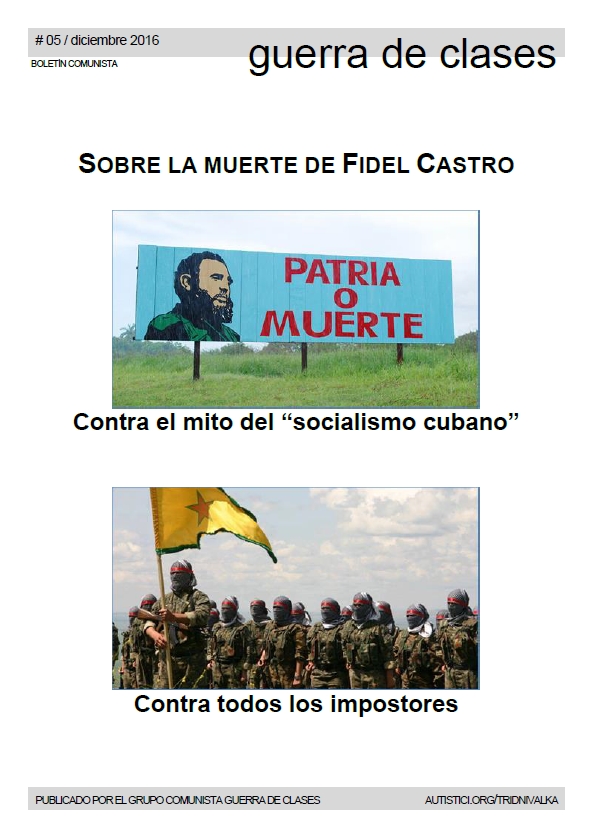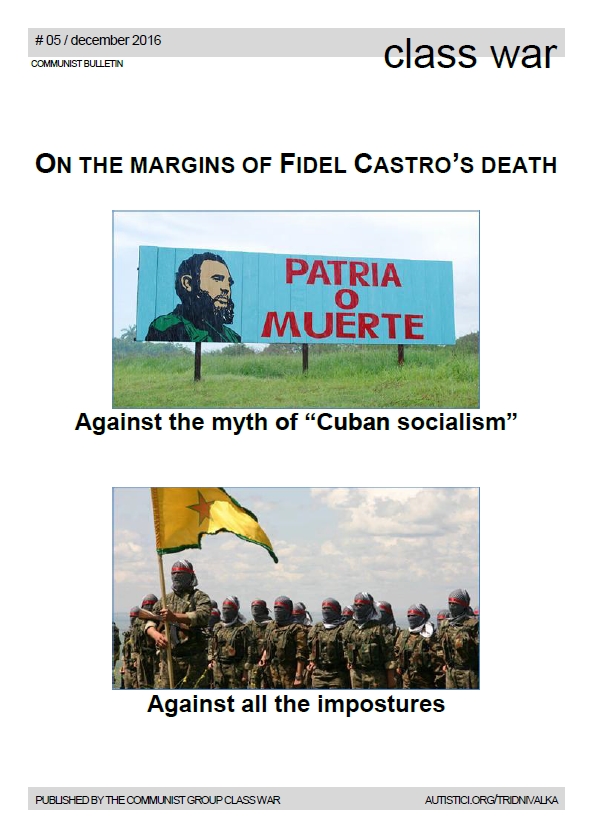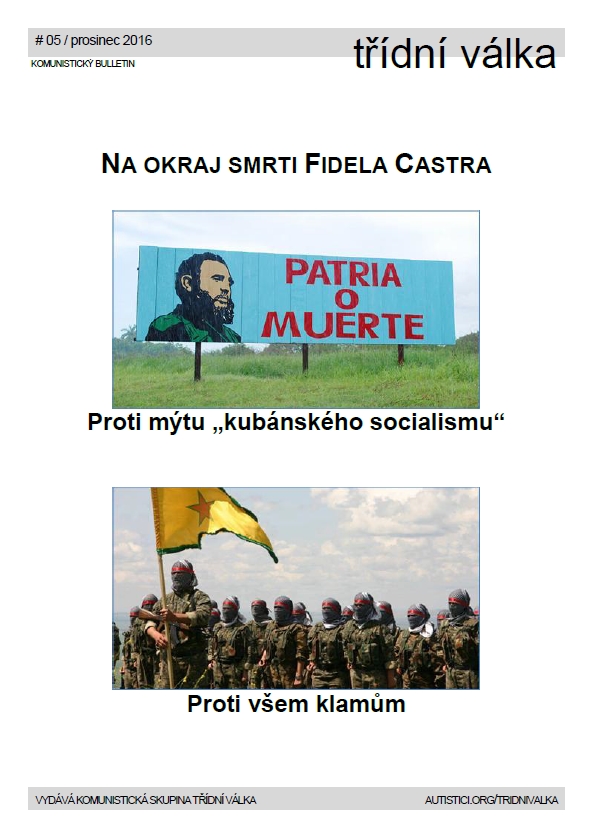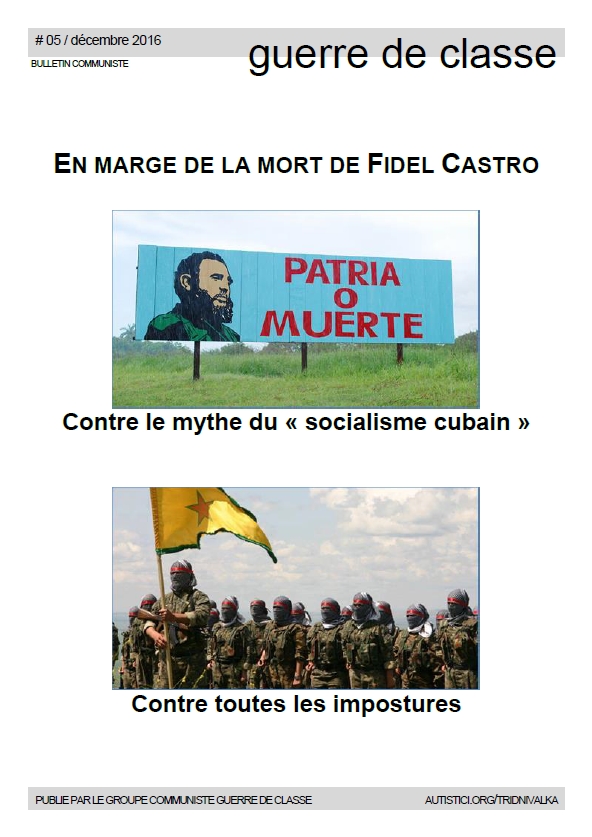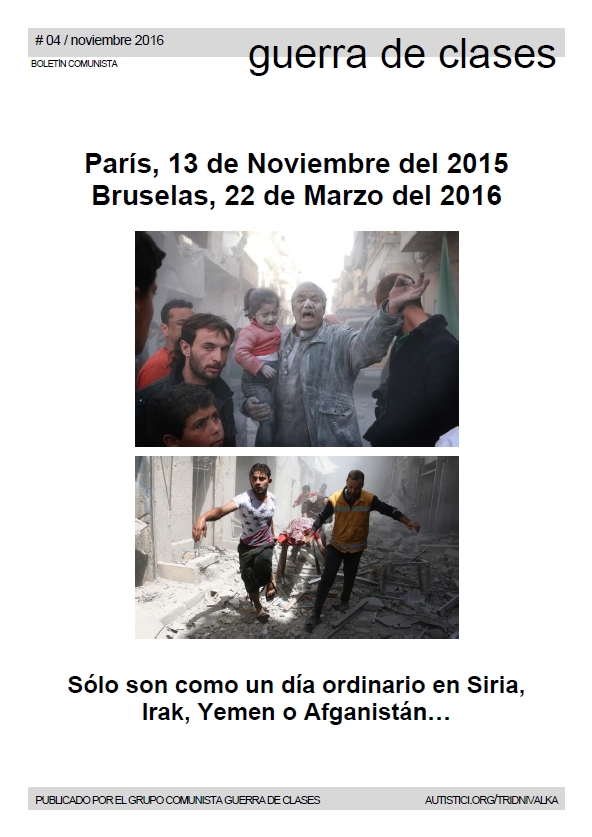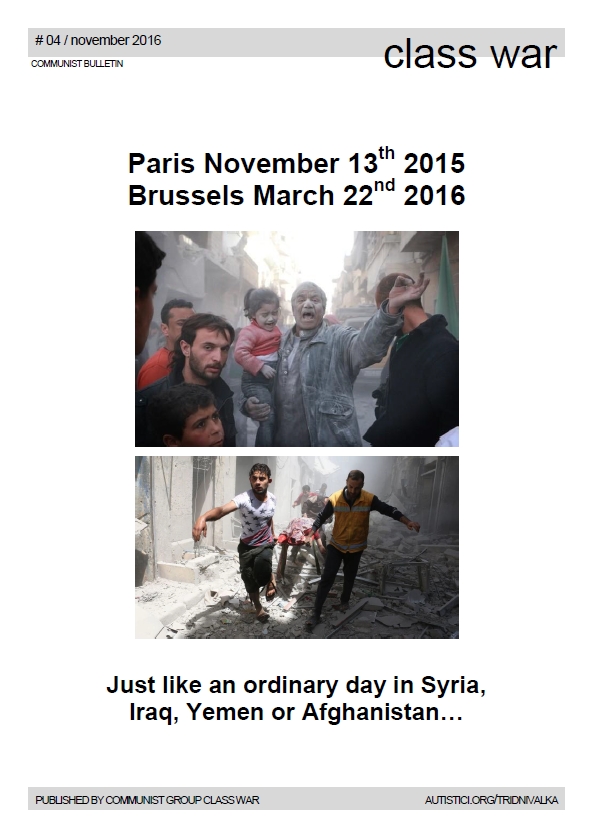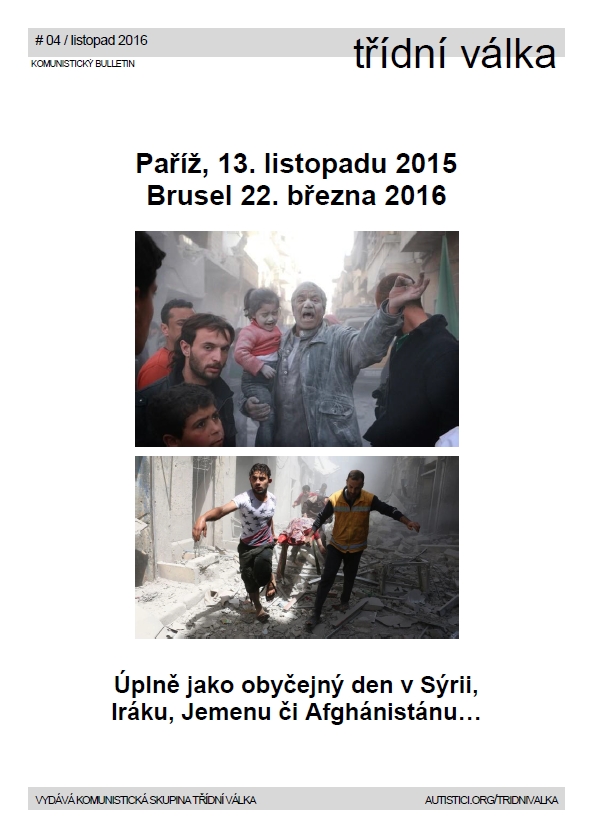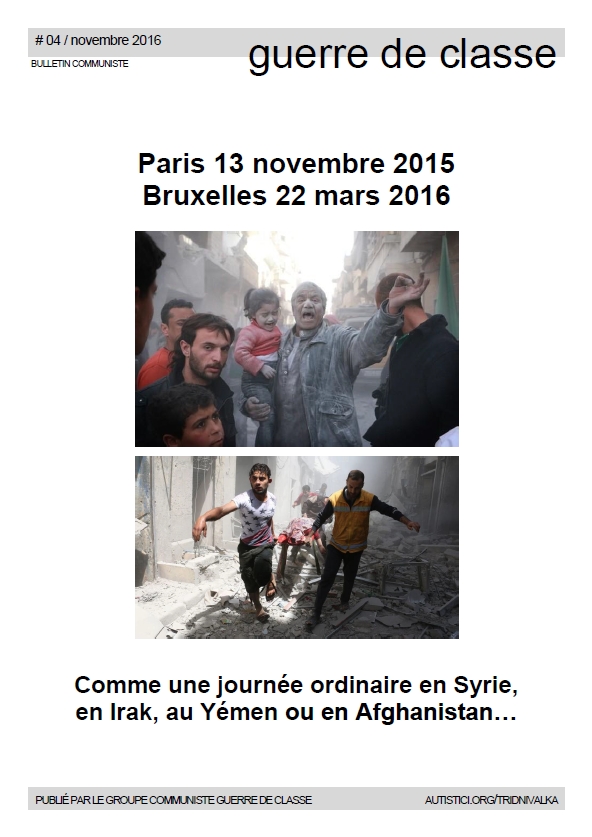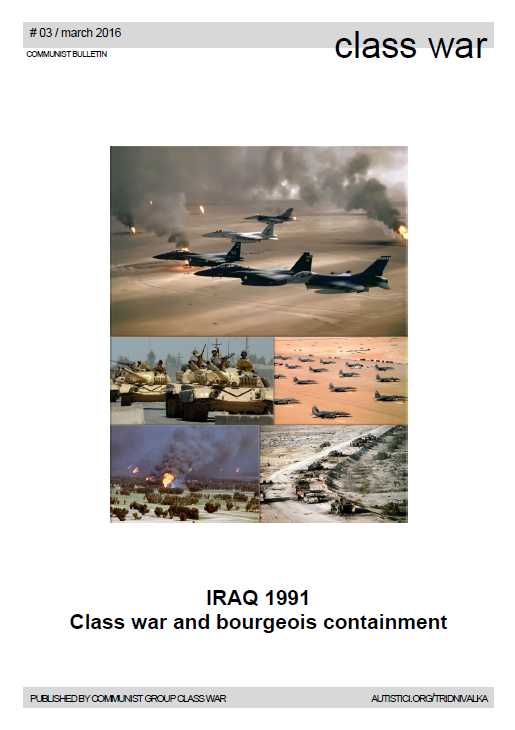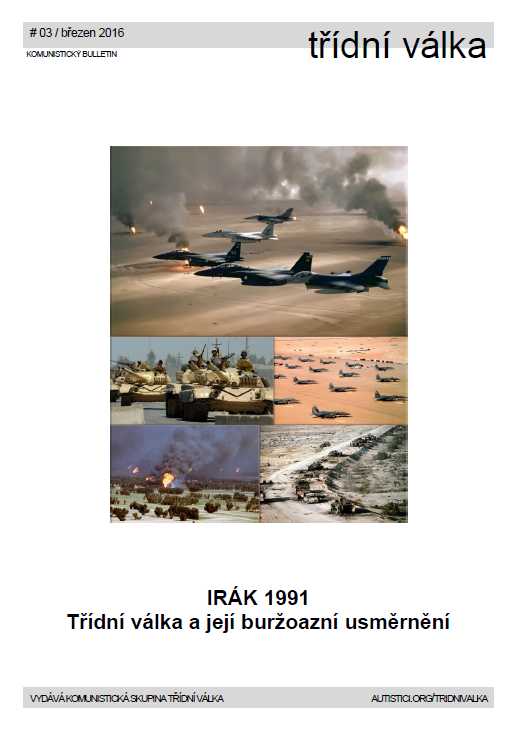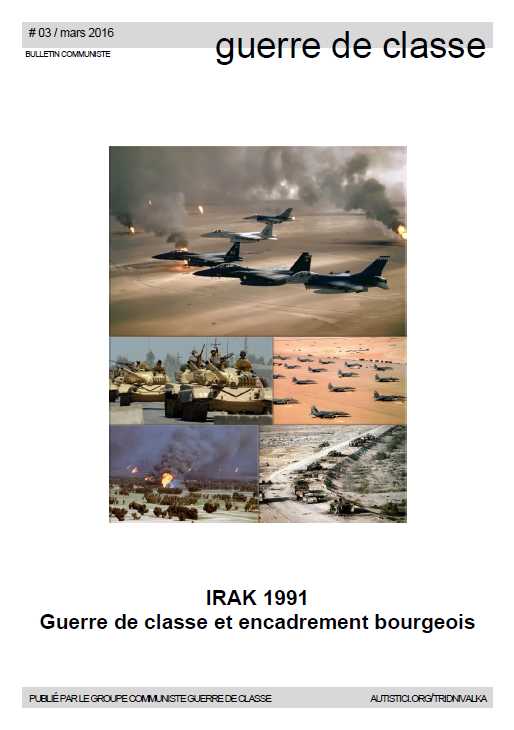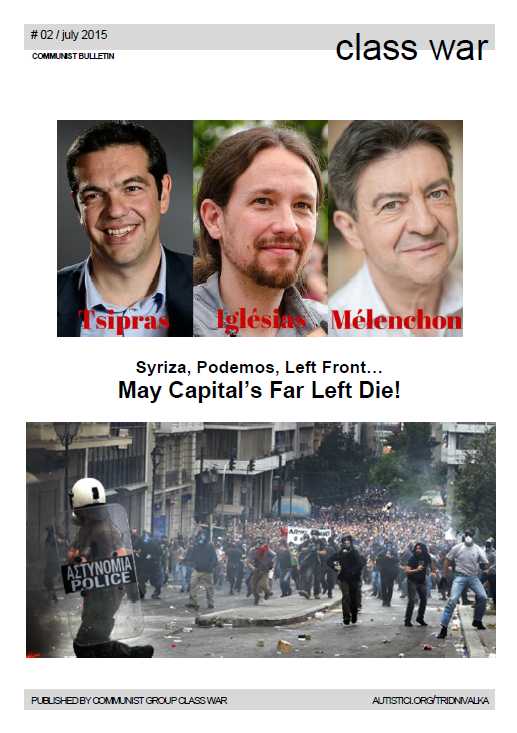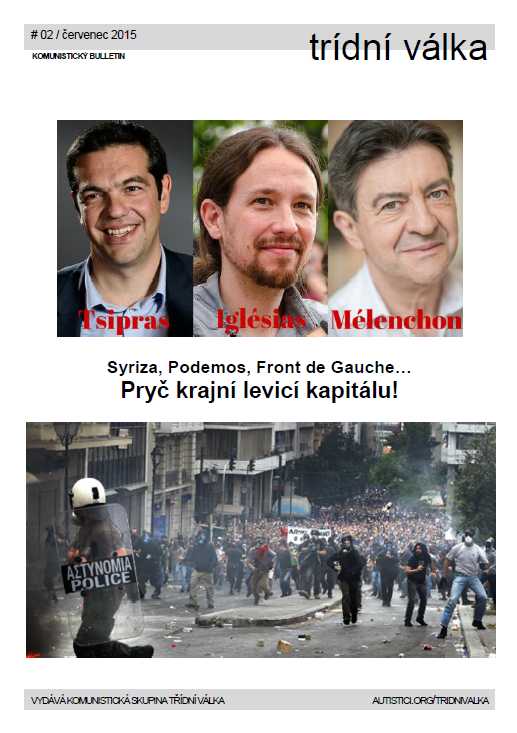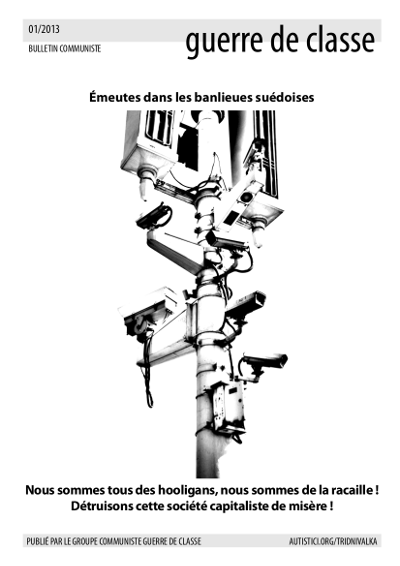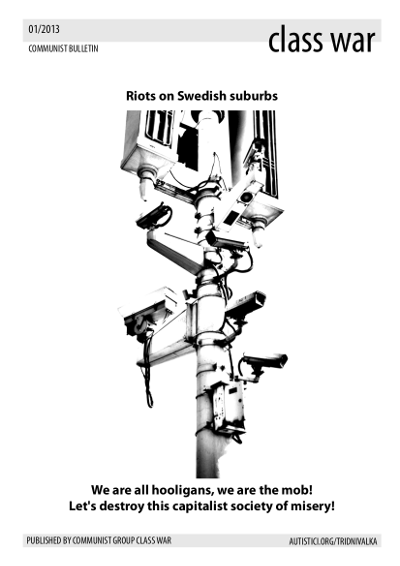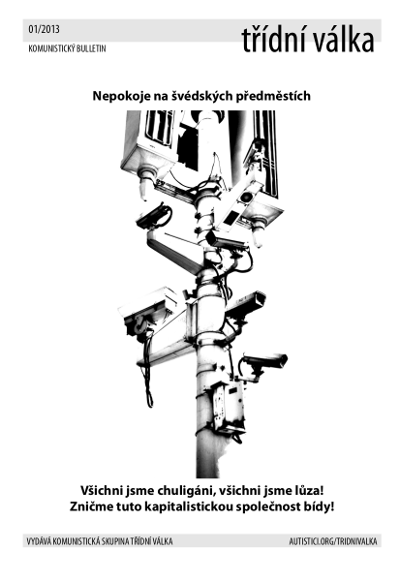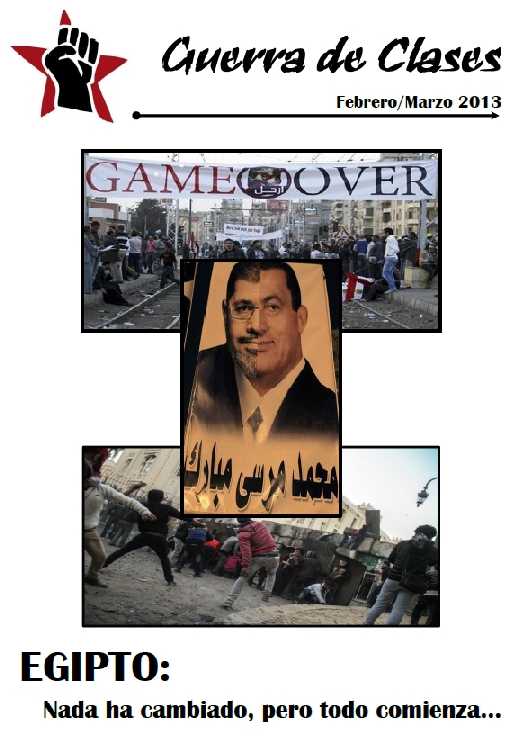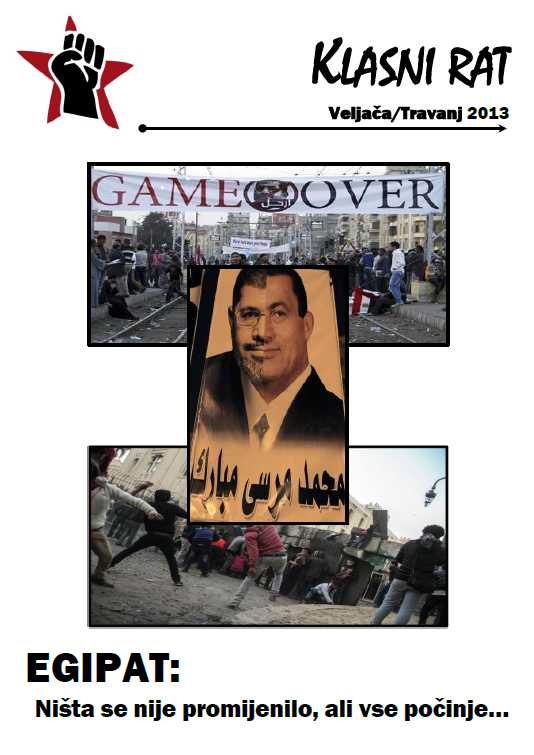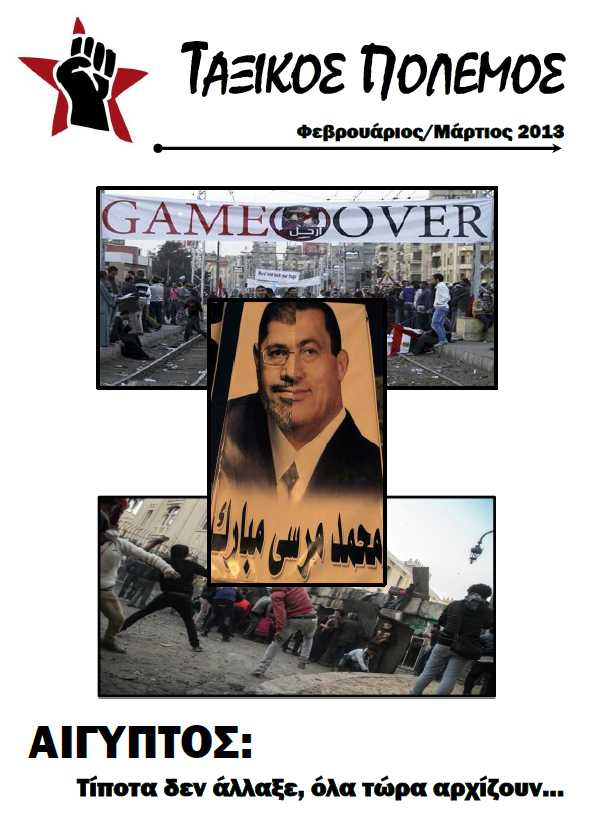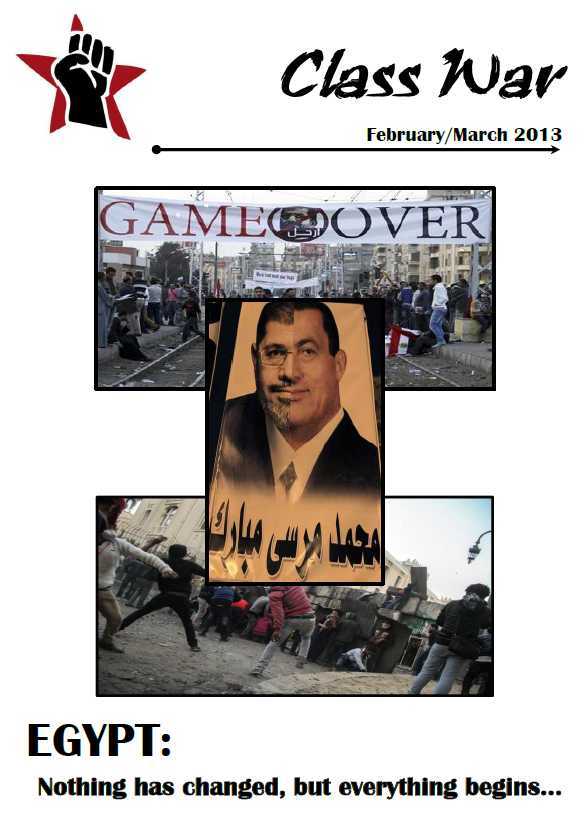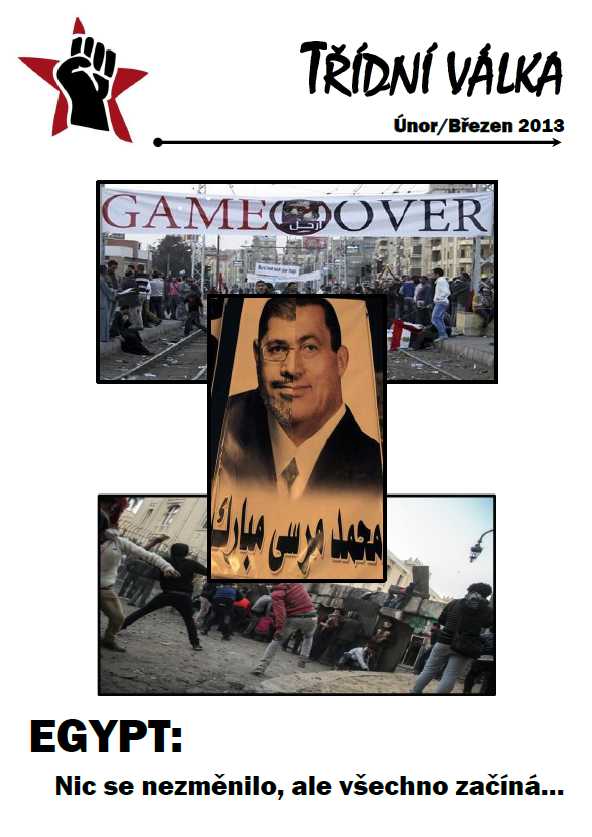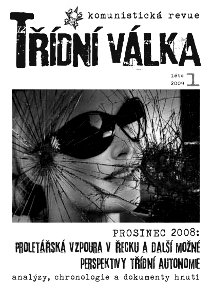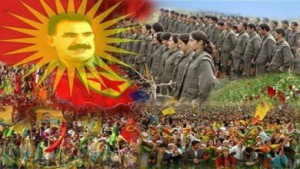 | Čeština | English | Français |
| Čeština | English | Français |
The history of class struggles is teeming with a vast number of impostures; one of the most recent after the Sandinistas’ imposture in Nicaragua is that prevailing since twenty years and shaking the leftist and alter-globalization small milieu short of exoticism, we are referring to the Zapatista’s imposture in Chiapas. Our history is punctuated with other very famous impostures, which were dug into our flesh, the flesh of our revolutionary brothers and sisters who fell under the blows of the exploiters and their henchmen, impostures built on the repression of our struggle movements, of our attempts to abolish the existing state of things, the current order, the capitalist order.
They indeed were not much in the 1920s to denounce the imposture of the “socialist paradise”, the myth of the “proletariat’s homeland”, the “big lie” of “socialism in one country”, “the bright future” and “harmonious society”; there were not a lot of Otto Rühle and KAPD to denounce this whole masquerade. Whole convoys of an imposing number of delegations made of intellectuals, journalists, activists, unionists arrived in the USSR to see with their own eyes all this “beauty”, and then returned home to sing this new “revolutionary regime’s” praises.
And then it was China, Albania, Vietnam, Cuba… that served as a model for generations of useful idiots who believed that to simply restore the façade and paint it in red would be enough to remove misery and exploitation. There are none so blind or deaf as those who will not see or hear. There are none so Social Democrat and therefore being in favour of the capitalist order as those who believes that simple reforms (whether “radical” they may appear) are the essence of a revolutionary process that will in fact completely transform the society and the human being on the ruins of the old world, the world of value, commodity, wage labour and money.
If we focus on all these impostures that have emptied the subversive substance of the real movements of struggle of our class, we obviously do not want to mix the latter with the ideological structuring which speak on their behalf and which claim to represent them, but which ultimately have no other concern than to supervise, contain, hijack and thus to liquidate them. We do not confuse the social movement known as the “Paris Commune” and the government that took the same name, we do not confuse either the revolutionary process that developed during the wave of struggle of the years 1917-21 in Russia, Ukraine, Germany, Hungary, etc. with the various Social Democratic parties and unions, whether they are libertarian, Bolshevik or others, in short all these bourgeois parties for the proletariat, which didn’t rest until strengthening and expanding the limits and weaknesses of our struggles. In the same way, and without considering all the struggles of our class as being of an equal and comparable importance, we do not confuse the EZLN with the struggle of agricultural proletarians in Mexico or the PKK/PYD with the struggle in Kurdistan.
We therefore present here three texts that participate in this process of rupture with the romantic vision of “solidarity campaign” towards the “Rojava Revolution”:
- “I have seen the future and it works.” – Critical Issues for the supporters of the revolution in Rojava is a text published initially on the Libcom blog, which succinctly addresses some key issues such as the place of women, the role of the police, the wage labour relations, religion, strategic alliances, revolutionary purpose;
- PKK, Democratic Confederalism, and Nonsense – Juraj Katalenac is a text published by militants who mainly speak Croatian and gave to their structure the name Svjetska Revolucija (“World Revolution”) – we have translated both these texts in French and Czech;
- Kurdistan? is a text co-written by Gilles Dauvé which also addresses key issues such as armament, nationalism, daily life, social structure, women militias and role, enthusiasm of libertarian circles, critique of the State, etc. – we have also assumed the Czech translation of this text.
# # #
“I have seen the future and it works.” – Critical questions for supporters of the Rojava revolution
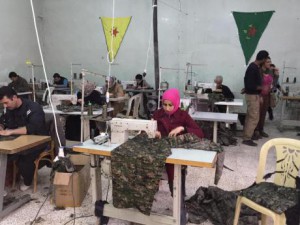 Almost a 100 years ago, the US journalist, Lincoln Steffens visited the Soviet Union and proclaimed: “I have seen the future and it works.”[1] Ever since then, leftists have continued to delude themselves, not only about the Soviet Union, but about China, Cuba, Nicaragua, Venezuela and elsewhere. After a century of such delusions it is crucial that we don’t hesitate to ask critical questions of every revolution – even if that revolution is being threatened by a brutal counter-revolution.
Almost a 100 years ago, the US journalist, Lincoln Steffens visited the Soviet Union and proclaimed: “I have seen the future and it works.”[1] Ever since then, leftists have continued to delude themselves, not only about the Soviet Union, but about China, Cuba, Nicaragua, Venezuela and elsewhere. After a century of such delusions it is crucial that we don’t hesitate to ask critical questions of every revolution – even if that revolution is being threatened by a brutal counter-revolution.
# Picture caption: Another “bullshit job”? Cooperative labour in Rojava. #
SO HERE ARE SOME CRITICAL QUESTIONS FOR SUPPORTERS OF THE ROJAVA REVOLUTION:
Women will be at the forefront of any genuine social revolution and women’s involvement in the Rojava revolution is certainly striking. But disillusioned Stalinists have often used feminism as an excuse to abandon class politics. Indeed the leaders of the PKK say that “the liberation of women is more valuable and meaningful that the liberation of classes” and the PKK’s patriarch, Abdullah Ocalan, argues that the class war “has come to an end”.[2]
So how can lower class Kurdish women break from the PKK and truly liberate themselves? Is there any women’s movement in Rojava that is genuinely independent of the largely middle class leadership of the PKK/PYD? If, as eyewitnesses’ claim, men still predominate in the streets and the workplaces, how can women change this situation?[3]
Women’s role in the PKK/PYD militia is also striking. But what is so revolutionary about being recruited (or forcibly conscripted) into an army, obeying orders and suffering the trauma of combat? Female military recruitment failed to lead to long-term women’s liberation in other nationalist uprisings such as the Sandinista revolution. Why should it succeed in Rojava?[4]
If the PKK has broken from Stalinism, why does its very cultish website still eulogise Abdullah Ocalan as much as ever? Where is there a clear apology for the PKK’s murder of so many of its left-wing opponents and dissidents? Where is there an apology for its many years of de facto alliance with Assad’s murderous dictatorship?[5]
In the 1990s, Ocalan boasted that “I am the strongest man in Kurdistan, and the people regard me as a prophet”. More recently he has recommended that “[Murray] Bookchin must be read and his ideas… practised”.[6] Although Salih Muslim, the PYD leader, claims he is against telling people what to do, he has also said: “we apply [Ocalan’s] philosophy and ideology to Syria.” And as eyewitnesses confirm, “images of Ocalan are everywhere [in Rojava].” A genuinely radical revolution is impossible unless people think for themselves. So how can the Rojavan proletariat break from the Ocalan personality cult?[7]
One PKK/PYD police chief has claimed that the Rojavan police intend to eventually eliminate themselves.[8] But modern policing was originally invented in the 1800s to impose private property and wage labour. Surely it can only be eliminated by completely abolishing both property and wage labour?
# Inmates of a Rojava prison. #
In some contrast to the police chief’s radical claim, there are many other claims of violent repression by the PKK/PYD police. Are these claims all just anti-PKK propaganda? There are also claims that many ‘popular’ organisations in Rojava are fronts for the PKK/PYD who, along with their militias, hold much of the real power.[9] Even if these claims are exaggerated, how can local popular assemblies with almost no resources have any real power unless they start socialising or communising more private property?
Unfortunately, the economic revolution in Rojava has been rather modest so far. An economics minister has said that: “With the beginning of the revolution… it was even forbidden to break open a cash box”. He also said that he wanted any coops to compete with private capital.[10] In this situation, how is wage labour in Rojava’s coops any less alienating or miserable than any other work in capitalist society?
# PKK/PYD leader, Salih Muslim, meeting with US “neocon” Zalmay Khalilzad. #
A new Arab Spring is desperately needed to overthrow both ISIS and their Saudi, Gulf State and Turkish backers. How can the Rojava revolution, with its ‘radical Kurdish identity’ and its bizarre semi-religious cult around Ocalan, ever inspire the majority of Arabs? Surely only a revolution that offers the prospect of sharing and communising ALL the private and state capital of the Arab world (i.e. its vast oil wealth) could begin to compete with the appeal of Islam? (Such a genuinely radical revolution may seem an impossible prospect. But as capitalism’s crisis continues, it can only become more possible.)
In December 2014, while lesser Rojavan officials were meeting with US activists Janet Biehl and David Graeber, the top PKK/PYD official, Salih Muslim, was discussing military collaboration with the US “neocon” Zalmay Khalilzad. (As US ambassador in Afghanistan and Iraq, Khalilzad masterminded the occupation of both countries – occupations whose corruption and brutality provoked today’s widespread support for the Taliban and ISIS.)[11]
Unable to inspire revolution across the Arab world, the PKK/PYD have instead chosen to ally with the US. But won’t this alliance just encourage more Arabs to distrust Kurds and to join ISIS? Won’t it push the region even further into an inter-imperialist bloodbath? Although in the short-run, Western intervention may sometimes help some people, in the long-run, from Palestine to Iraq to Libya, hasn’t it always led to an even worse disaster? (And are the PKK/PYD already making concessions – such as inviting other more bourgeois Kurdish parties to jointly rule Rojava – to maintain Western support?)[12]
Exactly 100 years ago, most of Europe’s leftists were supporting either side in the First World War on the grounds that they were somehow fighting for democracy and socialism. Since then leftists have taken sides in virtually every inter-imperialist war for similar reasons. After tens of millions of deaths, and little success in overthrowing capitalism, shouldn’t we be looking for a better way forward than taking sides in barbaric inter-imperialist wars?
Whatever the correct answers to all these questions, many people in Rojava are genuinely trying to transform society in very difficult circumstances. We certainly need to oppose the embargo of Rojava and to demand open borders for all refugees. But surely our priority must be working out how revolution might happen here in the West – a revolution which would be a vital complement to any successful revolution in the Middle East.
[1] In an uncanny parallel to Biehl and Graeber’s visit, Steffens visited the Soviet Union at the same time as a US government delegation – although at least Biehl and Graeber went on a separate delegations! Lincoln Steffens – Spartacus Educational.
[2] “New Year Message from the KCK”, 31/12/14; A.Ozcan, “Turkey’s Kurds”, p.204-6.
[3] Becky/SIC, “Starting from the Moment of Coercion”; Zaher Baher, “The Experiment of West Kurdistan”, libcom.org.
[4] “PYD Rounds up Conscripts”, Rudaw.net 12/10/14. Back in the 1980s many leftists were very impressed by the fact that a militia, this time ran by the Sandinistas, was 30% female. Unfortunately, these leftists completely underestimated the consequences of the Nicaraguan revolution’s failure to abolish private property. The subsequent betrayal of women by the Sandinistas is exemplified by the fact that the present Sandinista government has imposed anti-abortion laws that are even stricter than those of the pre-revolutionary Somoza dictatorship. “The Guardian”, 29/7/09.
[5] PKK Online; P.J.White, “Primitive Rebels Or Revolutionary Modernizers?”, p.143-8; J.Tejel, “Syria’s Kurds”, p.75-9, 92-5, 137.
[6] H.Tahiri, “The Structure of Kurdish Society”, p.223-4; M.Gunter, “Out of Nowhere?”, p.176.
[9] “Middle East Report” no.151, International Crisis Group website; H.Allsopp, “The Kurds of Syria”, p.202-9; KURDWATCH.ORG, especially “Report no.9”.
